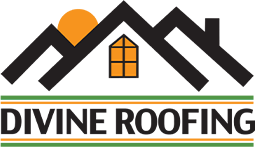Common Types of Storm Damage
Everyone knows that Colorado Springs receives a lot of intense weather. No matter the season, our roofs take a beating. From ice and snow in the winter to our long hail season throughout the spring and summer, your roof works overtime to keep your home protected. Consequently, storm damage is perhaps the most common roofing problem our customers deal with.
Some of the most destructive weather events we experience in Colorado Springs include:
- Hail
- Lightning
- High winds
- Rain
- Snow
- Ice
What You Should Do After a Storm
After a major weather event, such as a hailstorm or a snowstorm, you should perform a visual inspection of your roof, inside and out. In addition to visible damage, like broken or missing shingles and damaged flashing, you should also look for signs of leaks and moisture issues inside your home. Things like water staining, musty smells, and visible water inside your home, attic, or crawlspace can all indicate your roof was damaged in the storm. If you notice any issues, call our roof inspectors right away for guidance.
Keep reading to learn more about two of the most common types of weather-related roof damage.
Hail Damage
Hail damage is the most common type of roof damage we see in Colorado Springs. Our hail season stretches from spring into early fall. Generally, we see hailstorms from April through September. Hailstones come in a range of sizes, from pea-sized to golf-ball-sized. While larger hailstones can rip holes in your roofing materials, even smaller stones can damage your roof significantly. Because hail is so incredibly destructive, you should always check your roof for signs of hail damage after a storm.
Signs of hail damage include:
- Broken, split, or cracked shingles
- Loss of granules on asphalt shingles
- Dents and divots in flashing and gutters
- Torn or missing flashing or gutters
- Visible damage to roof installations, skylights, vents, etc.
To learn more about how hail can damage your roof and what to do, review our blog here.
Snow & Ice
Colorado Springs can get upwards of 50" of snow each year. When snow and ice pile up on your roof, your roof's integrity can become compromised. In addition to the immense weight of snow and ice, you may also experience moisture problems and leaks. As snow sits on your roof, your house's warmth slowly melts the snow, which then refreezes as it runs down your roof. This melting and refreezing can tear holes in your roofing materials as the water expands and contracts.
Additionally, as the snow slowly melts, it typically refreezes around the edges of your roof (this is what causes icicles). As this pattern repeats throughout the winter, an ice dam can form at the end of your roof, blocking water from draining. When water cannot drain off your roof, it gets pushed back up into your roofing materials. This can lead to leaks inside your home. Furthermore, the increased moisture in your roof can lead to a host of other issues, including dangerous mold growth.
Review our blog on how ice can damage your roof here.
What to Do When a Storm Damages Your Roof
If your roof is damaged by a storm, call a local roofing company like Divine Roofing, Inc. right away. Storm damage often comes with moisture and water problems, and you need to ensure that your roof's integrity is restored as quickly as possible. The sooner you have your roof inspected by a professional, the sooner you can have the damage repaired and the less likely it is to get worse.
Divine Roofing, Inc. is a local roofing company serving the Colorado Springs area. We are well-established in the community, and our roofers are all licensed and insured. As a locally owned and operated company, we understand what our customers face. We are committed to providing every customer with the same high level of service, no matter what. We are also here for you throughout the repair process and beyond. When you need us, we are just a quick phone call away.
Will My Home Insurance Cover Storm Damage to My Roof?
Often, home insurance will cover storm damage to your roof. Before filing your claim, you should carefully document all the damage, including photographs and a written description. You should also schedule a roof inspection with one of our professional roof inspectors. Because we live and breathe roofing, we can thoroughly inspect the entire roof system and identify any problems you may have missed. This will help you ensure that your insurance claim is as complete and detailed as possible.
To schedule a roof inspection, contact Divine Roofing, Inc. now.

